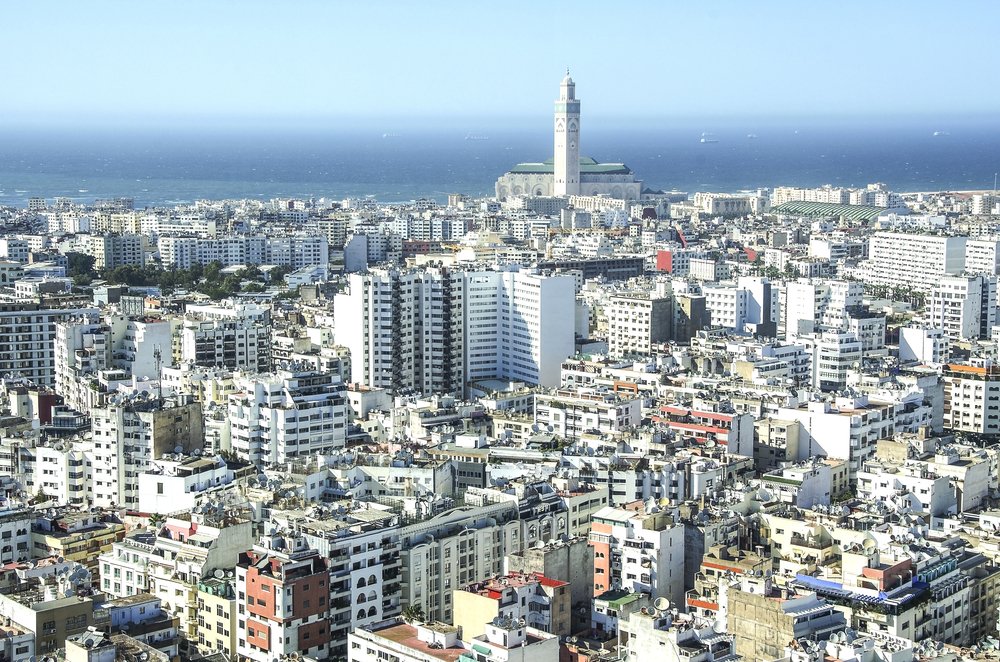In recent years, Morocco has experienced a significant increase in foreign visitor numbers due to its appeal to tourists seeking adventurous and distinctive travel experiences. However, when traveling to such a country, it’s essential to be aware that aspects like public safety and societal norms may differ from what you’re accustomed to.

Is Morocco Safe?
Morocco is generally a safe country for travelers, but it’s essential to be mindful of its laws, cultural customs, and adhere to local norms. The crime rates in Morocco are relatively low, but there are common issues such as scam artists and pickpockets that travelers should be aware of.
Tourist hotspots like Marrakech, Fes, and Essaouira are considered safer than rural and remote regions such as the Atlas Mountains due to their regular influx of tourists. However, challenges and threats may exist throughout the country. Morocco follows conservative Islamic traditions, so solo travelers, female travelers. Regardless of your background, it is crucial to be vigilant while traveling in Morocco, understand the potential risks, and know how to avoid or handle any encountered difficulties.
Safety in public places
Safety in public places can be a concern for travelers in Morocco, as some locals may attempt to scam or deceive visitors, especially in tourist-heavy areas. Petty crime and pickpocketing are common issues, particularly in souqs and medinas. To safeguard your belongings, carry only small amounts of cash, avoid wearing expensive jewelry, and keep valuables out of sight in secure pockets. Beware of aggressive begging and selling tactics from vendors, especially if they perceive you as carrying a lot of cash. It is best to leave your passport and extra cash in a hotel safe.
When exploring popular tourist spots in Morocco’s cities, you may encounter people claiming to be official tour guides or helpful locals. Exercise caution with these services, as some unlicensed guides may overcharge and take you to places where they earn commissions on your purchases. Prior research on city tours is advised, and if approached on the streets, politely decline and be assertive. Some individuals may even demand payment after following you during your sightseeing, claiming they provided services without charge.
Taxis in Morocco can also be a potential tourist trap. Always negotiate the fare upfront to avoid drivers inflating prices significantly upon reaching your destination, as it is a common practice.
Safety for Female Travellers
In certain areas of Morocco, particularly during the nighttime, women may feel uncomfortable due to approaches or attention from local men. Verbal harassment on the streets is relatively common, and women, especially when walking alone, may be targeted and face an increased risk of being followed, accosted, or even assaulted. To enhance safety, it is advisable for female travelers to move in groups of three or more and stick to well-lit streets.
Respecting local cultures and customs is essential when traveling with Intrepid. In Morocco, it’s crucial to dress more conservatively, particularly around religious sites like mosques. Day-to-day attire should cover the knees and shoulders, while visits to mosques require clothing that covers from the elbow to ankle, and it’s customary to cover the hair with a scarf.
Even in private spaces, caution is advised in Morocco. Lock your accommodation door when inside, and avoid being alone in your room with hotel staff. If hotel staff needs access to your room, it’s safer to request assistance while you are outside or wait at the reception. Keep your valuables either on your person or secure them in a hotel safe. When leaving the hotel, carry a card with the hotel’s address and contact numbers for reference.
Staying safe in Morocco
Staying safe in Morocco involves taking certain precautions and being aware of your surroundings. Here are some tips to consider:
- Travel in a group: Whenever possible, travel in a small group, especially when walking and sightseeing, especially at night. There is safety in numbers, and it can help deter unwanted attention.
- Secure your valuables: Keep your valuables, such as passports, money, and electronics, locked away in a hotel safe or a secure place in your accommodation.
- Research tours and accommodations: Before booking any city tours or rural stays, do thorough research to ensure they are reputable and safe. Reading reviews and getting recommendations can be helpful.
- Respect local customs and dress codes: Morocco is a conservative country, so dress modestly, especially in religious sites. Be mindful of local customs and avoid behaviors that may offend or attract unnecessary attention.
- Drink bottled water: Avoid drinking tap water and opt for bottled water to prevent potential health issues.
- Be cautious with street vendors: While exploring markets and souqs, be aware of aggressive selling tactics and scams. Negotiate prices and be firm in declining offers if not interested.
- Use reputable taxis: If using taxis, make sure to use reputable companies or ask your accommodation to arrange transportation for you.
- Be cautious with strangers: Be friendly but cautious when interacting with strangers. Avoid giving out personal information and be cautious about accepting invitations or offers from people you don’t know well.
- Stay informed about local news and advisories: Keep yourself updated with the latest news and travel advisories for Morocco to be aware of any potential safety concerns.
By following these tips and using common sense, you can enhance your safety and enjoy your time in Morocco.






